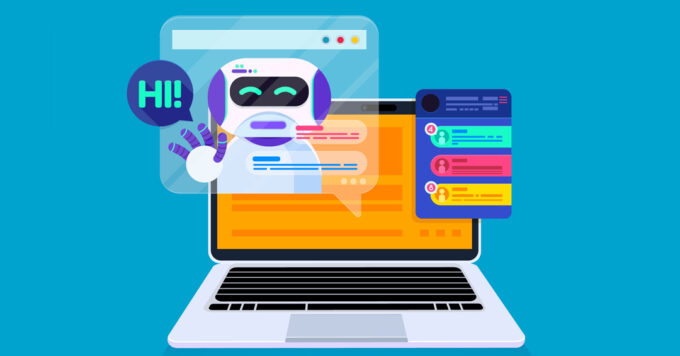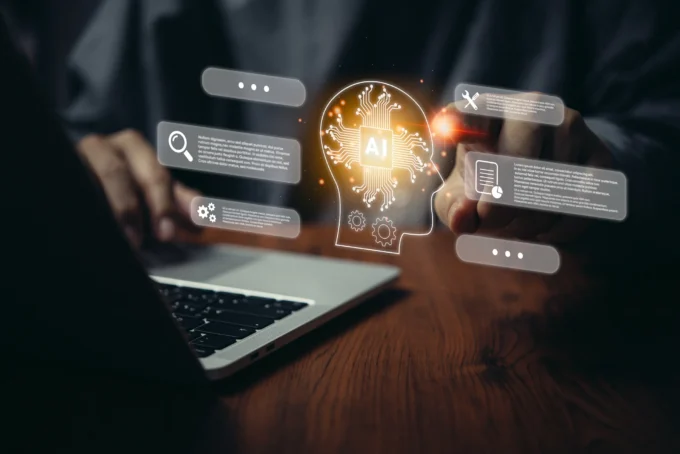This expectation fuels the widespread use of AI and automation for customer service. Traditional methods struggle to match evolving customer needs. Fortunately, AI offers a solution to not just meet but exceed expectations.
Read on and enlighten yourself so that your business can stay ahead in this digital world. We will help you to understand why you need AI and automation for better customer services and also how you can make use of it most efficiently.
The Rise of AI in Customer Service
Traditional customer service methods need help to keep pace with evolving customer demands. Fortunately, AI has emerged as a game-changer, offering businesses a pathway to meet and exceed these expectations. According to a recent study, 73% of consumers now rank customer experience as their primary decision-making criterion, overshadowing factors like product quality and pricing.
The benefits of AI in customer service are hard to ignore:
- Faster Response Times: AI-powered chatbots and virtual assistants can provide instant, round-the-clock support, reducing customer wait times and improving satisfaction.
- Personalized Interactions: By analyzing customer data and preferences, AI can tailor interactions and recommendations to individual needs, creating a highly personalized experience.
- Scalability: AI systems can handle a vast number of customer inquiries simultaneously, ensuring consistent service quality even during peak periods.
As businesses strive to meet these heightened expectations, the integration of AI customer support solutions has become a strategic imperative. Embracing customer interaction platforms that facilitate seamless communication across channels, deploying chatbots to automate customer service, leveraging AI-driven insights for personalized experiences, adopting predictive capabilities to anticipate needs proactively, and strategically implementing AI technologies are all crucial steps in this transformative journey.
Automation’s Role in Revolutionizing Customer Interactions

Source: forbes.com
While AI powers intelligent customer interactions, automation streamlines and optimizes the underlying processes, further enhancing the customer experience.
From intelligently routing inquiries to the appropriate channels to automating repetitive tasks, automation plays a crucial role in reducing human error, accelerating response times, and ensuring consistent service delivery.
The chart below showcases the significant positive impacts of AI on various customer service metrics in 2023.
Customer experience automation has become a key focus area for businesses seeking to improve operational efficiency while maintaining a high standard of customer satisfaction. By automating routine tasks and processes, businesses can free up valuable human resources to focus on more complex, high-value interactions, resulting in a win-win scenario for both customers and the organization.
AI and Automation Solutions for Customer Service
The below table highlights some of the popular AI and automation solutions for customer service, along with their key features, advantages, and potential drawbacks.
| Solution | Key Features | Pros | Cons |
| Chatbots | Natural language processing, conversational AI, 24/7 availability | Instant support, scalability, cost-effective | Limited to pre-defined scenarios, potential for misunderstandings |
| Virtual Assistants | Voice recognition, multimodal interactions, task automation | Intuitive, hands-free interactions, personalized experiences | Integration complexities, privacy concerns |
| Predictive Analytics | Machine learning, data mining, forecasting | Proactive support, personalized recommendations, improved decision-making | Data quality and availability challenges, potential biases |
| Robotic Process Automation (RPA) | Process mapping, task automation, workflow optimization | Increased efficiency, reduced errors, and cost savings | Limited flexibility, potential job displacement concerns |
| Sentiment Analysis | Natural language processing, emotion detection, feedback analysis | Improved customer understanding, targeted service improvements | Potential misinterpretations, privacy concerns |
| Knowledge Management Systems | Intelligent search, content management, collaborative editing | Centralized knowledge base, improved consistency, self-service capabilities | Maintenance requirements, potential information silos |
Businesses can use this table as a starting point to evaluate and select the most suitable solutions based on their specific needs and requirements.
Enhancing Customer Interactions with AI-Driven Insights
AI’s ability to analyze vast amounts of customer data and derive actionable insights is transforming the way businesses approach customer interactions. By leveraging predictive analytics, AI systems can anticipate customer needs and proactively address inquiries, leading to a more anticipatory and responsive service approach.
Furthermore, the power of AI extends beyond reactive support. Businesses can utilize AI’s data analysis capabilities to tailor interactions and service offerings to individual customer preferences, thereby enhancing the overall customer journey and fostering long-lasting relationships.
Chatbots: The Frontline of AI in Customer Service

Source: snapengage.com
Chatbots have emerged as a prominent example of AI in customer service, serving as the frontline for automated customer interactions. These intelligent conversational agents can handle a wide range of inquiries, from simple information requests to complex problem-solving scenarios.
By leveraging natural language processing (NLP) and machine learning algorithms, chatbots can understand customer queries, provide relevant responses, and even escalate issues to human agents when necessary.
This seamless integration of human and AI capabilities ensures that customers receive the best possible support, regardless of the complexity of their inquiry.
One industry that has embraced chatbots wholeheartedly is e-commerce, where businesses like Amazon, eBay, and Walmart have implemented AI-powered virtual assistants to enhance the shopping experience. From product recommendations to order tracking and returns, these chatbots have become invaluable tools for delivering efficient and personalized customer service.
Embracing Customer Interaction Platforms
Customer interaction platforms facilitate seamless communication across various channels, including social media, email, and live chat. These platforms integrate AI and automation technologies to streamline interactions, automate responses, and gather valuable customer insights.
AI-powered chatbots and intelligent virtual assistants can instantly answer inquiries, send targeted messages, and provide personalized recommendations. Moreover, AI-driven data management and analysis tools within these platforms enable businesses to collect, manage, and analyze customer data, allowing for highly personalized experiences.
By leveraging AI and automation, customer interaction platforms can enhance multichannel customer service by ensuring a consistent and unified approach across all platforms. Customers can enjoy a seamless experience, receiving prompt and personalized support regardless of their preferred communication channel.
Tackling AI Integration Challenges
While the benefits of integrating AI and automation into customer service are clear, businesses often face several challenges during the implementation process. Data privacy concerns, technical limitations, and ensuring seamless human-AI collaboration are among the common obstacles that must be addressed.
To overcome these hurdles, businesses must adopt a strategic approach to AI integration. This includes:
- Assessing Business Needs and Readiness: Conducting a thorough assessment of existing customer service processes, data infrastructure, and organizational readiness for AI adoption.
- Selecting the Right Technologies and Partners: Evaluating and choosing AI and automation solutions that align with business objectives and can seamlessly integrate with existing systems.
- Training and Change Management: Providing comprehensive training to customer service teams to ensure they can effectively collaborate with AI systems and embrace the cultural shift towards AI-enhanced customer service.
By proactively addressing these challenges, businesses can pave the way for a smooth and successful integration of AI and automation technologies, ultimately delivering the effortless customer service experiences that modern consumers demand.
Measuring Success in AI-Enhanced Customer Service

Source: marketingevolution.com
As businesses invest in AI and automation solutions, it’s crucial to establish clear metrics and key performance indicators (KPIs) to measure the effectiveness of these implementations. Some relevant KPIs to track include:
- Customer Satisfaction Scores: Monitoring customer satisfaction levels through surveys, ratings, and feedback to gauge the impact of AI-enhanced customer service.
- First Contact Resolution Rates: Evaluating the percentage of customer inquiries resolved during the initial interaction, thanks to AI-powered support.
- Average Response and Resolution Times: Measuring the speed of customer service delivery, from initial inquiry to resolution, to assess the efficiency gains from AI and automation.
- Cost Savings: Analyzing the financial impact of AI and automation by tracking operational costs, resource allocation, and productivity gains.
Continuous analysis and adaptation are essential to ensure that AI systems evolve with changing customer needs and business goals. By regularly reviewing and optimizing AI implementations based on performance data, businesses can maintain a competitive edge in delivering exceptional customer service experiences.
The Future of Customer Service with AI and Automation
The future of customer service is poised for even more transformative possibilities as AI and automation technologies advance. Generative AI models like ChatGPT and GPT-4 can engage in natural language conversations, understand context, and generate human-like responses,
This could potentially revolutionize customer service by enabling seamless and intelligent interactions with reduced human intervention. Additionally, advancements in multimodal AI, combining text, speech, and visuals, could further enhance the customer service experience with intuitive and immersive interactions.
As this landscape rapidly evolves, businesses must continuously explore emerging AI and automation trends and integrate them into their strategies to maintain a competitive edge in delivering exceptional customer service.
FAQs: Addressing Common Inquiries
- How can businesses use AI for customer service?
Start by identifying areas where AI can improve customer experience, like using chatbots for initial inquiries or predictive analytics for proactive support. Choose AI solutions compatible with your existing systems, and train your customer service team for a smooth transition.
- Are there privacy concerns with using AI for customer service?
Yes, data privacy is a valid concern. Businesses must prioritize data security, follow privacy regulations like GDPR and CCPA, implement robust data governance policies, encrypt sensitive information, and obtain customer consent for data usage.
- Can small businesses benefit from AI in customer service?
Absolutely! AI and automation technologies are becoming more accessible and scalable, allowing even small businesses to leverage their capabilities. Many AI solutions offer affordable subscription models or pay-as-you-go pricing, making them budget-friendly for smaller organizations. AI can also help small businesses provide enterprise-level customer service without extensive resources.

Source: effectivebusinessblog.com
Conclusion
As customer expectations are exceeding like anything, businesses that embrace AI and automation will gain a competitive advantage. By leveraging these technologies to deliver effortless, personalized, and anticipatory experiences, businesses can not only meet but exceed customer demands, fostering long-lasting relationships and driving growth.
To embark on this transformative journey, it’s essential to adopt a strategic approach, addressing challenges head-on, measuring success through relevant KPIs, and staying ahead of emerging trends in AI and automation.
Don’t let your business fall behind in the age of AI-enhanced customer service. Embrace these technologies today and unlock a world of exceptional customer experiences.


